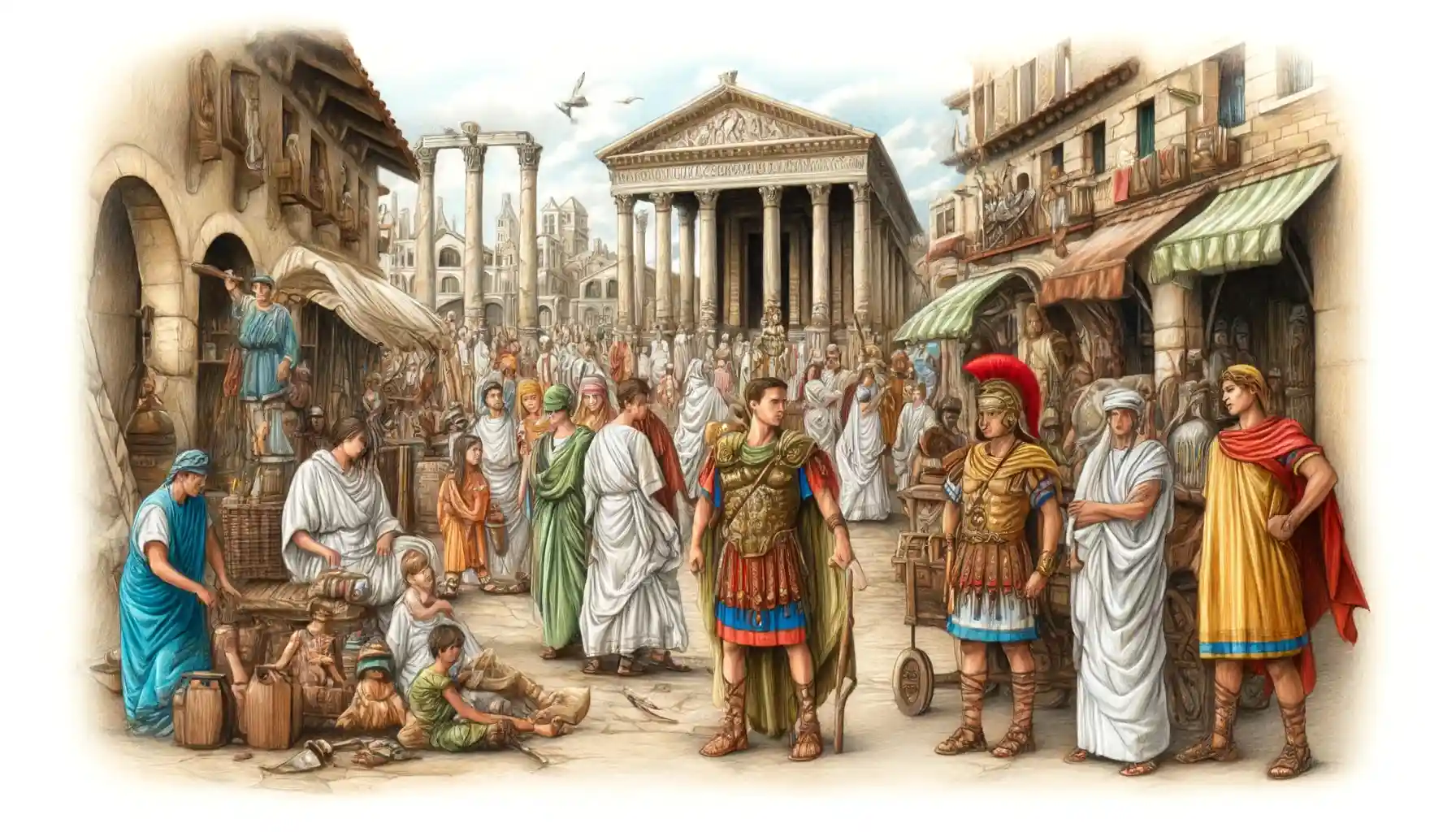Cornelius, a Roman centurion stationed in Caesarea, is historically significant as the first Gentile convert to Christianity, receiving a vision from God, welcoming the apostle Peter, and being baptized alongside his household, which marked a pivotal expansion of the early church to include Gentiles.
The Romans, as the dominant political and military power during the New Testament period, significantly influenced the early Christian narrative through their governance, infrastructure, interactions with key figures such as the Apostles Paul and Peter, and the persecution of Christians, ultimately shaping the spread and development of Christianity.
Rome, the capital of the Roman Empire, holds significant importance in biblical history, particularly in the New Testament, where it is depicted as a key center for early Christian activity involving pivotal figures such as the Apostles Paul and Peter, and played a crucial role in the spread of Christianity through its infrastructure and influence.
The Book of 2 Peter warns against false teachers and emphasizes the importance of spiritual growth, doctrinal integrity, and preparedness for the coming judgment, urging believers to stand firm in their faith and to grow in the grace and knowledge of Jesus Christ.
The Book of 1 Peter offers enduring encouragement and exhortation to persecuted believers, emphasizing their identity in Christ and calling them to live holy lives, rooted in hope and grounded in the grace of God.





